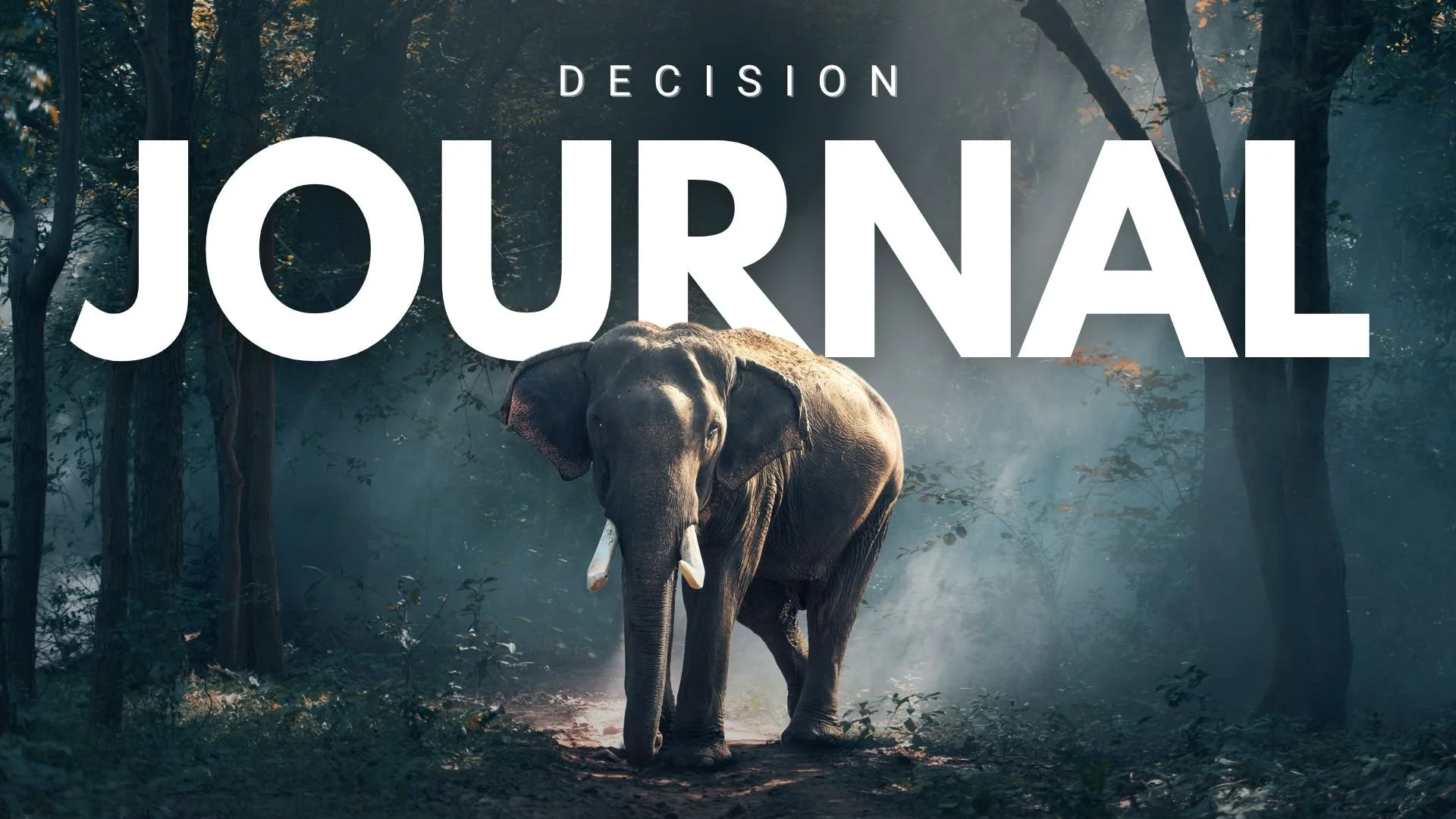The Leadership Hack That Compounds: Journaling Your Decisions
I have found journaling to be very powerful. The decision to journal regularly has been life affirming and life changing. This is about using that powerful process to make your decisions better.
You are making decisions all day. If you are a leader, you just have to. Some of these decisions are easy, some gut wrenching and some downright disgusting. In fact, the higher you climb up the hierarchy, the larger the responsibility, the higher the chances that your decisions matter. Every time you say yes, no or maybe, the decision could alter the course of many lives.
Some leaders use consensus, some are pretty autocratic, some quick, some deliberate, a lot. Some intuitive, some data driven, analytical. This is not a post about which is best. This is a post about how to use a decision journal to become better at something that could create outsize results for you.
Some skills are worth a 100x. Get better at decision making, and you will find yourself making more, bigger and better decisions. Get a reputation that you are indecisive or worse, bad at it, you will stagnate. Decisions will be made for you, not by you.
A decision journal is a simple tool to keep a track of your decisions. What happened, what decision did you make, how you made it and what was the result. There is tons of research on your biases - hindsight bias being the one that comes to mind in this context.
Hindsight bias is the psychological tendency to perceive past events as more predictable than they actually were. Often called the "I-knew-it-all-along" effect, this cognitive bias causes people to believe they could have foreseen an outcome after it has occurred, even if it was uncertain or surprising at the time.
To mitigate these and other biases, it is humbling to see how you have actually fared in your decision making.
Some examples:
- You believed a certain team member had potential so you promoted her. Six months later other team members quit. What do you attribute it to ? Did you think this would happen? To make matters worse, what if the promotion did not produce the results you were hoping for?
- You offered a rate to a travel agent or a channel hoping for incremental business from that source. Others found out and you had to offer the same to them too. Did the source create additional sales because of the new rate you offered? How would you judge the decision?
Decisions have consequences. Not all decisions you take will lead to the results you wanted, but if capture the unintended consequences in a journal, you will get better at imaging these scenarios the next time a similar decision is required. Your memory is good, something noted down, is better.
Here is a simple Decision Journal - Starter
1. Date & Decision:
2. Why did I make this decision?
3. What outcome do I expect?
4. What actually happened? (Fill later)
5. What did I learn?
Start with this. Try and log as many decisions as you can. Remember, you are building your decision making skill.
Jeff Bezos once said most decisions should be made with about 70% of the information. If you wait for 90%, you’re too slow. A decision journal shows you if your 70% was enough — or if you were moving too cautiously.
You can add a simple ‘Good One’ or ‘Could Have Done Better’ or any other measure. But the critical part here is revisiting the decision. This will allow you to spot your blind spots. Some patterns may emerge. Some solutions may present themselves.
For e.g.
- Research into "post-lunch decision-making bias" ," revealing that decision quality and patterns can change throughout the day, often influenced by mental fatigue and fluctuating blood sugar levels.
- Decision fatigue: The broader phenomenon of "decision fatigue" suggests that the quality of decisions deteriorates throughout the day as a result of making a series of decisions. This leads people to gravitate toward the path of least resistance or make more impulsive choices.
- Research has shown that people tend to have a higher preference for risk in the afternoon compared to the morning.
- A 2014 study presented a counterintuitive finding: being moderately hungry improved strategic decision-making in a complex gambling task compared to being satiated.
and many more studies.
So should you add ‘Hunger Status’ in your decision journal? Sure!
Add that and any other variable you think could make a difference. Maybe your sleep quality, your health, your financial situation at the time, your personal life. We are human and our decision making reflects that.
The format is not important, the process of journaling your decisions and reviewing them at a later stage is the key. Use AI to record, use your voice, use anything, just learn to record and review.
A more detailed format is available as a pdf. Click here.
Sometimes a decision is clear and data-driven (Cynefin calls this ‘clear’). Sometimes it is complex, with no obvious right answer. Journaling forces you to name the kind of decision you are making.
One of the most beneficial part of the process is that it increases clarity and reduces anxiety. Writing down your thoughts untangles complicated decisions by making your reasoning visible and structured.
And it builds confidence. Every decision that created the result you thought it would, creates in you the successful narrative - ‘I am someone who makes good decisions’. This reinforcement is key, for leaders are known for the decisions they make. The better the decisions, the better the leader.

